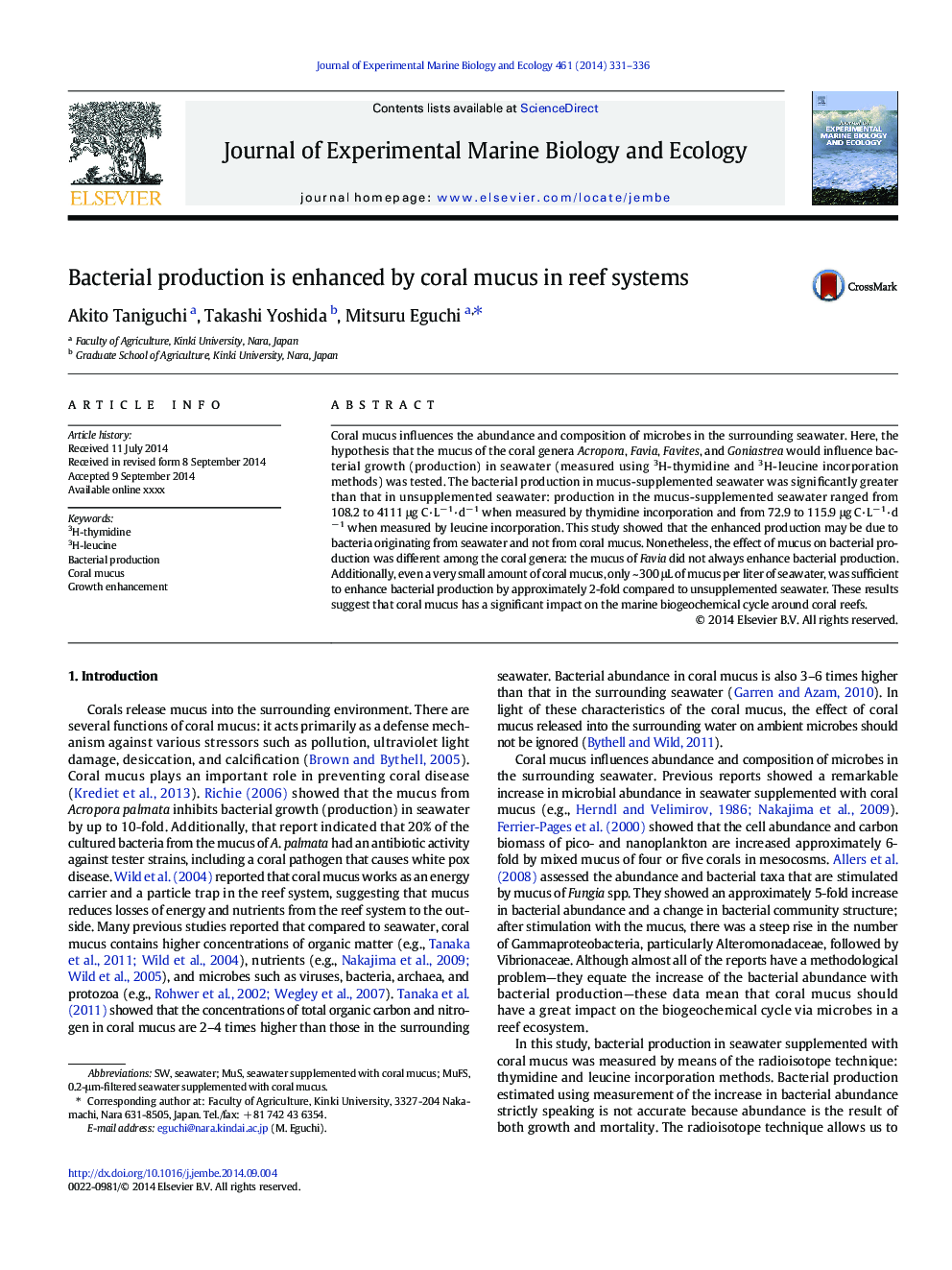| Article ID | Journal | Published Year | Pages | File Type |
|---|---|---|---|---|
| 6303977 | Journal of Experimental Marine Biology and Ecology | 2014 | 6 Pages |
Abstract
Coral mucus influences the abundance and composition of microbes in the surrounding seawater. Here, the hypothesis that the mucus of the coral genera Acropora, Favia, Favites, and Goniastrea would influence bacterial growth (production) in seawater (measured using 3H-thymidine and 3H-leucine incorporation methods) was tested. The bacterial production in mucus-supplemented seawater was significantly greater than that in unsupplemented seawater: production in the mucus-supplemented seawater ranged from 108.2 to 4111 μg C·Lâ 1·dâ 1 when measured by thymidine incorporation and from 72.9 to 115.9 μg C·Lâ 1·dâ 1 when measured by leucine incorporation. This study showed that the enhanced production may be due to bacteria originating from seawater and not from coral mucus. Nonetheless, the effect of mucus on bacterial production was different among the coral genera: the mucus of Favia did not always enhance bacterial production. Additionally, even a very small amount of coral mucus, only ~ 300 μL of mucus per liter of seawater, was sufficient to enhance bacterial production by approximately 2-fold compared to unsupplemented seawater. These results suggest that coral mucus has a significant impact on the marine biogeochemical cycle around coral reefs.
Related Topics
Life Sciences
Agricultural and Biological Sciences
Aquatic Science
Authors
Akito Taniguchi, Takashi Yoshida, Mitsuru Eguchi,
